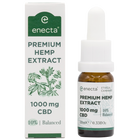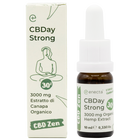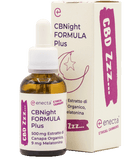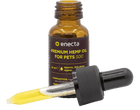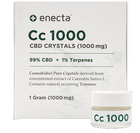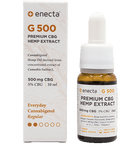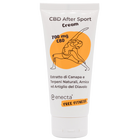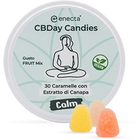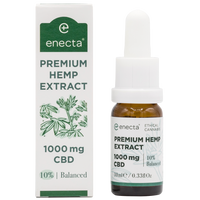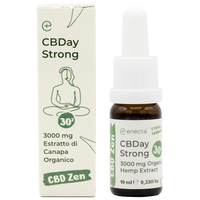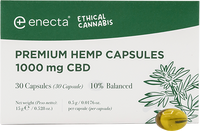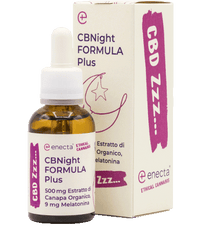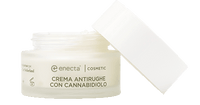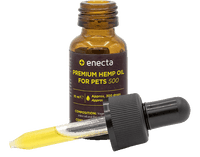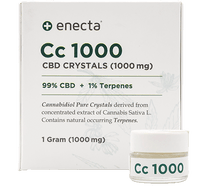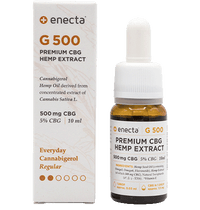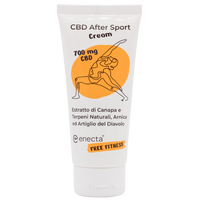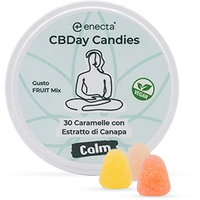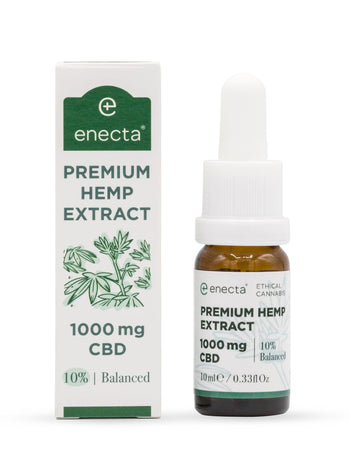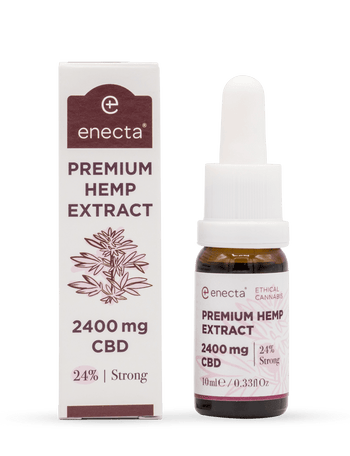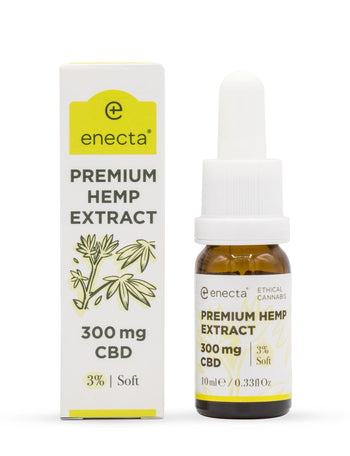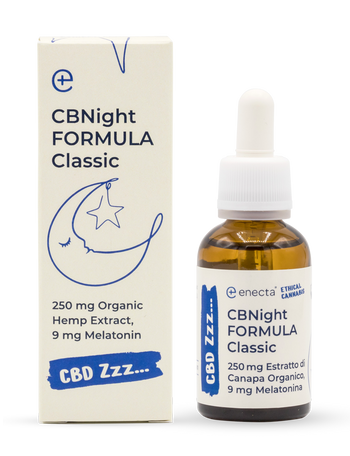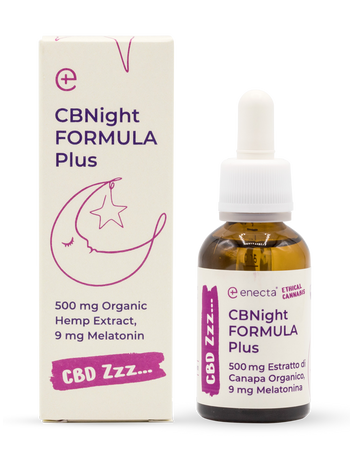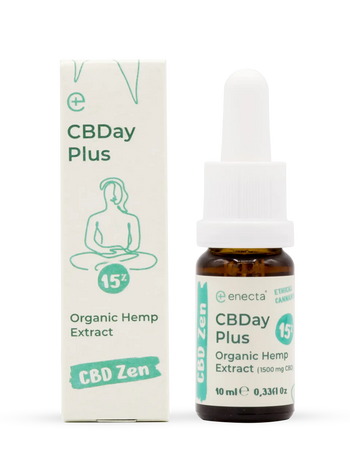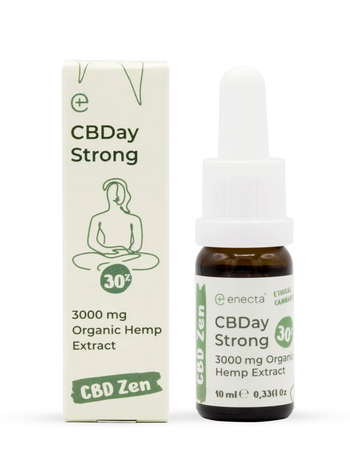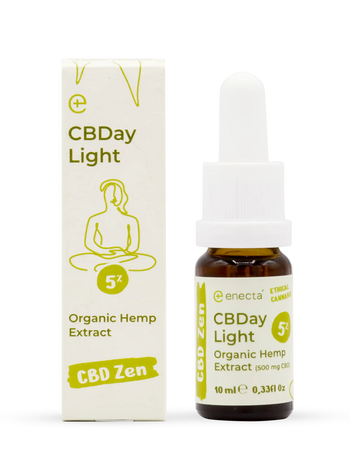Introduction to CBD Oil
CBD oil, derived from the hemp plant, is gaining popularity for its potential health benefits. It's used for a variety of purposes, from pain relief to anxiety reduction. Unlike THC, another compound found in cannabis, CBD is non-psychoactive, meaning it doesn't produce a ""high"". CBD oil can be consumed in different ways, including sublingual drops, capsules, or topical applications. Understanding its origins, benefits, and how to use it properly is essential for maximizing its potential benefits.
1.1 What is CBD?
CBD, short for cannabidiol, is a natural compound found in the hemp plant (Cannabis sativa). It is one of over 100 cannabinoids identified in the plant. Unlike THC (tetrahydrocannabinol), the psychoactive component of cannabis, CBD does not produce a high.
How is CBD extracted?
CBD is primarily extracted from industrial hemp, a specific variety of the hemp plant that contains less than 0.2% THC, making it legal to grow in many regions. The extraction usually involves CO2 extraction, a method considered safe and effective. This process yields pure CBD, which is then used in various products, including CBD oil.
Chemical Structure and Properties
CBD belongs to the class of phytocannabinoids. It has a complex chemical structure that allows it to interact with the human body's endocannabinoid system (ECS). The ECS plays a crucial role in regulating various physiological processes such as pain sensation, mood, and appetite.
Legal Status
In many regions, including Germany, CBD is legal as long as the THC content is below 0.2%. This means you can buy and use CBD oil and other CBD products without a prescription, provided they meet this requirement.
Variety of CBD Products
Besides CBD oil, there are various other CBD products available, including capsules, creams, and edibles. Each product offers different benefits and uses. For more information, check the corresponding sections of our ultimate CBD oil guide.
1.2 Brief History and Origins of CBD Oil
The use of the hemp plant for medicinal and therapeutic purposes dates back to ancient times. As early as 2737 BCE, Chinese Emperor Shen-Nung reportedly used hemp extracts for medical purposes. Hemp was also widely used in other cultures, such as ancient Egypt and Greece.
Discovery of Cannabinoids
The modern study of cannabinoids began in the 20th century. In 1940, chemist Roger Adams first isolated CBD from the hemp plant. Over the following years, more cannabinoids were identified and their effects studied.
Legalization and Regulation
With increasing research and evidence of CBD's benefits, a global movement toward the legalization and regulation of hemp products has emerged. In many places, including Germany, CBD has been legal for several years, provided the THC content is below 0.2%. This allows the free sale and use of CBD oil and other products.
Modern Developments
In recent years, the demand for CBD products has significantly increased. Improved extraction techniques and stricter quality controls now allow consumers to choose from a wide range of high-quality CBD oils and other products. This has led to better understanding and broader acceptance of CBD.
International Acceptance
Globally, the acceptance of CBD has greatly improved. Many countries have adjusted their laws to allow the sale and use of CBD products. This global movement ensures that more people can access the potential benefits of CBD.
1.3 Difference Between CBD and THC
CBD (cannabidiol) and THC (tetrahydrocannabinol) are the most well-known cannabinoids from the hemp plant, but they have different effects and legal statuses. Both compounds are extracted from the Cannabis sativa plant, but they differ in their chemical structures and their effects on the human body.
Chemical Structure
Although CBD and THC have similar molecular structures, they differ in the arrangement of atoms. This small difference affects how they interact with the body's endocannabinoid system (ECS). While THC binds to CB1 receptors in the brain and causes psychoactive effects, CBD has little interaction with these receptors and does not cause a high.
Effects on the Body
- CBD: Known for its calming and anti-inflammatory properties without psychoactive effects. It is often used to support stress, anxiety, and pain relief.
- THC: Causes the psychoactive effects (""high"") associated with marijuana use. THC can also offer therapeutic benefits but comes with the risk of unwanted psychoactive effects.
Legal Status
In Germany, the sale and consumption of CBD products are legal as long as the THC content is below 0.2%. THC, however, is strictly regulated and only allowed for medical use with a prescription. Products like CBD oil must meet strict guidelines to be legally distributed.
Medical Use
While CBD is commonly found in supplements, oils, and cosmetics, THC is used in medical treatments for chronic pain, nausea, and appetite loss, particularly in cancer patients and those with severe illnesses. More information on therapeutic properties can be found here.
Product Variety
Due to their different properties, there are a variety of products containing either CBD, THC, or both. Products like CBD full-spectrum oil utilize the synergy of various cannabinoids to achieve the best possible effect.
2. Production of CBD Oil
The production of CBD oil involves several steps to ensure a high-quality and safe product. The process starts with cultivating hemp plants rich in CBD and low in THC. After harvesting, CBD is extracted using methods such as CO2 extraction. The extracted CBD is then processed and mixed with carrier oils like hemp or MCT oil. Finally, rigorous quality control and lab testing are conducted to ensure purity and efficacy.
2.1 Cultivation of Hemp Plants
The cultivation of hemp plants is the first step in producing CBD oil. In Germany, the cultivation must comply with strict legal requirements to ensure the quality and legality of the products.
Selection of Hemp Varieties
Special hemp varieties with less than 0.2% THC are used for CBD production. These varieties are listed in the EU catalog and are chosen for their high CBD content and low THC concentration.
Growing Conditions
Hemp is typically grown in controlled environments such as greenhouses or outdoor farms, where factors like soil quality, irrigation, and pest control are carefully monitored. Proper plant care is crucial for the quality of the final product.
Organic Cultivation
Many producers opt for organic cultivation to minimize the use of pesticides and herbicides, ensuring a purer product and environmental protection. More information on organically grown hemp can be found here.
Harvesting and Processing
Harvest time is critical for the CBD content of the plants. After harvesting, the plants are dried and processed to extract the valuable CBD. These steps are detailed in the next section.
Legal Requirements
In Germany, hemp cultivation is highly regulated. Farmers must obtain permits and ensure THC limits are adhered to. These regulations help ensure the quality and safety of CBD products.
2.2 Extraction Methods for CBD Oil
The extraction method is crucial for the quality and purity of CBD oil. Various methods are used to extract CBD, each with its own advantages and disadvantages.
CO2 Extraction
CO2 extraction is the most common and preferred method. It involves using carbon dioxide under high pressure and low temperature to extract CBD and other beneficial cannabinoids and terpenes from the hemp plant. This method produces a pure and safe product without solvent residues.
Ethanol Extraction
In ethanol extraction, ethanol is used as a solvent to extract CBD from the hemp plant. This method is effective and relatively inexpensive but can also extract chlorophyll, which may lead to a bitter taste. Additional filtration processes are required to remove chlorophyll.
Oil Extraction
Oil extraction involves heating the hemp plant in a carrier oil such as olive or coconut oil to extract cannabinoids. This method is safe and simple but less efficient and has a shorter shelf life since the oil can go rancid more quickly.
Comparison of Extraction Methods
| Method | Advantages | Disadvantages |
|---|---|---|
| CO2 Extraction | Pure product, no solvent residues | Costly |
| Ethanol Extraction | Cost-effective, efficient | Can extract chlorophyll, needs additional filtration |
| Oil Extraction | Safe, simple | Less efficient, shorter shelf life |
Choosing the Right Method
The choice of extraction method depends on various factors, including the desired properties of the final product, cost, and resource availability. For high-quality CBD oils, CO2 extraction is often preferred due to its ability to produce a clean and safe product.
2.3 Quality Control and Lab Testing for CBD Oil
Quality control and lab testing are crucial to ensure that CBD oil meets the highest standards. These measures ensure that the products are safe, effective, and free from contaminants.
Why is Quality Control Important?
Quality control ensures that CBD oil complies with legal requirements and contains the advertised CBD concentrations. It also ensures that contaminants such as pesticides, heavy metals, and solvent residues are absent.
Types of Lab Tests
- Potency Analysis: Determines the exact CBD content and other cannabinoids like THC, CBG, and CBN.
- Terpene Profile: Analyzes terpene concentrations that contribute to the effect and aroma of CBD oil.
- Contaminant Testing: Checks for pesticides, heavy metals, and solvent residues.
- Microbiological Tests: Ensures the product is free from harmful microorganisms like bacteria, mold, and yeast.
Independent Laboratories
Reputable manufacturers have their products tested by independent third-party labs for maximum transparency and credibility. Test results should be accessible to consumers, either on the packaging or online. For instance, you can find test results for Enecta products here.
GMP and ISO Certification
Many manufacturers follow Good Manufacturing Practices (GMP) guidelines and are ISO-certified. These standards ensure that CBD oil is produced under hygienic conditions and meets all quality requirements. These certifications are indicators of a high-quality product.
Regular Review and Certification
Regular checks and certifications by independent labs ensure consistent high quality of CBD oil. These tests are often conducted on different batches to ensure that each bottle meets the same high standards.
Through rigorous quality control and comprehensive lab testing, manufacturers can ensure that their CBD oil is safe and effective. Consumers should always look for products with transparent test results and certifications.
3. Types of CBD Oil
There are different types of CBD oil, each varying in composition and the cannabinoids they contain. Each type offers unique benefits and uses:
3.1 Full-Spectrum CBD Oil
Full-spectrum CBD oil contains a variety of cannabinoids, terpenes, and other beneficial compounds from the hemp plant. This type of CBD oil offers the ""entourage effect,"" where all the components work synergistically to maximize the benefits.
Composition of Full-Spectrum CBD Oil
Full-spectrum CBD oil includes CBD, other cannabinoids like CBG and CBN, and trace amounts of THC (under 0.2% in Germany). It also contains terpenes, flavonoids, and essential fatty acids that contribute to its overall effect.
Benefits of the Entourage Effect
The entourage effect suggests that the various components of the hemp plant work better together than in isolation. Studies indicate that full-spectrum CBD oil may be more effective than isolated CBD.
Usage and Dosage
Full-spectrum CBD oil can be used for a variety of purposes, including supporting overall well-being, relieving stress, and improving sleep. Dosage should be tailored individually, starting with a low amount and increasing as needed.
Product Examples
Some examples of high-quality full-spectrum CBD oils from our range include: CBD oil and full-spectrum CBD oil.
3.2 Broad-Spectrum CBD Oil
Broad-spectrum CBD oil is a type of CBD extract that contains many of the same compounds as full-spectrum CBD oil, but without THC. This type of CBD oil also offers the entourage effect, without the risk of THC-related effects or legal issues.
Composition of Broad-Spectrum CBD Oil
Broad-spectrum CBD oil contains a variety of cannabinoids such as CBD, CBG, and CBN, as well as terpenes and flavonoids, but no THC. It combines the benefits of multiple plant compounds to enhance its effects.
Benefits of the Entourage Effect without THC
The entourage effect allows the various compounds to work synergistically, enhancing the therapeutic benefits of broad-spectrum CBD oil without causing psychoactive effects. This makes it an attractive option for those who want to avoid THC.
Usage and Dosage
Broad-spectrum CBD oil can be used similarly to full-spectrum CBD oil to support overall well-being, relieve stress, and improve sleep quality. Start with a low dose and adjust as needed.
Product Examples
Explore our range of broad-spectrum CBD oil: broad-spectrum CBD oil.
3.3 Isolate CBD Oil
Isolate CBD oil contains only pure CBD, without other cannabinoids, terpenes, or flavonoids. This product offers a highly concentrated form of CBD, ideal for users who want to ensure they consume no traces of THC or other plant compounds.
Production of Isolate CBD Oil
To produce isolate CBD oil, pure CBD is separated from all other compounds in the hemp plant. This involves a multi-step extraction and purification process, ensuring the final product is at least 99% pure CBD.
Benefits of Isolate CBD Oil
Isolate CBD oil offers several specific benefits:
- No traces of THC, making it ideal for those who undergo regular drug tests.
- Pure form of CBD, allowing for precise dosages.
- Tasteless, making it easy to use in various applications.
Usage and Dosage
Isolate CBD oil can be used in the same way as other CBD oils to support well-being and relieve stress. It is particularly suitable for individuals sensitive to other cannabinoids. Start with a low dose and increase as needed.
Legal Status
In Germany, isolate CBD oil is legal since it contains no THC. It is important to choose products from reputable providers that conduct transparent lab tests. More information can be found here.
Product Examples
Some examples of high-quality isolate CBD oils can be found in our range: CBD crystals.
3.4 Differences and Benefits of Full-Spectrum, Broad-Spectrum, and Isolate CBD Oil
When it comes to CBD oil, there are three main types: full-spectrum, broad-spectrum, and isolate. Each has unique properties and benefits that can cater to different needs and preferences.
Full-Spectrum CBD Oil
Full-spectrum CBD oil contains all the natural compounds of the hemp plant, including various cannabinoids, terpenes, flavonoids, and trace amounts of THC (under 0.2%). The entourage effect, where all components work together, enhances the oil's effectiveness. It's suitable for users who want the combined benefits of all plant compounds. Learn more here.
Broad-Spectrum CBD Oil
Broad-spectrum CBD oil offers the same entourage effect as full-spectrum but without THC. It includes various cannabinoids and terpenes, making it a good choice for those who want the benefits of multiple plant compounds without THC. Find out more about broad-spectrum CBD oil here.
Isolate CBD Oil
Isolate CBD oil contains only pure CBD, with no other cannabinoids, terpenes, or flavonoids. It's ideal for individuals who want to ensure they consume no THC or other plant compounds, especially useful for those undergoing regular drug tests. More information can be found here.
Comparison Table
| Type | Contents | Benefits | Drawbacks |
|---|---|---|---|
| Full-Spectrum | All cannabinoids, terpenes, THC (under 0.2%) | Entourage effect, enhanced effectiveness | Contains THC, which may be an issue for some users |
| Broad-Spectrum | All cannabinoids, terpenes, no THC | Entourage effect, no THC | Lacks THC, which may slightly reduce the entourage effect |
| Isolate | Pure CBD | No THC traces, precise dosing | No entourage effect |
Each type of CBD oil offers specific benefits that can vary according to individual needs. It is important to be well-informed and choose the right product for your requirements.
4. Mechanism of Action of CBD Oil
CBD oil interacts with the body's endocannabinoid system (ECS), which plays a crucial role in regulating various physiological processes such as pain perception, mood, and immune function. CBD does not directly bind to the CB1 and CB2 receptors of the ECS but influences them indirectly. It increases the concentration of endocannabinoids like anandamide and modulates other receptors, including serotonin and vanilloid receptors. These interactions contribute to the diverse health benefits of CBD oil.
4.1 Endocannabinoid System (ECS) Explained
The endocannabinoid system (ECS) is a complex network of receptors and biochemical processes found throughout the human body. It plays a crucial role in regulating numerous physiological processes, including pain sensation, mood, appetite, and sleep.
Components of the ECS
The ECS consists of three main components:
- Endocannabinoids: Molecules produced by the body that are similar to the cannabinoids in the hemp plant. The main endocannabinoids are anandamide and 2-AG.
- Receptors: CB1 and CB2 receptors found in different parts of the body. CB1 receptors are primarily in the brain and nervous system, while CB2 receptors are mainly in the immune system.
- Enzymes: Enzymes like FAAH and MAGL break down endocannabinoids once they have fulfilled their function.
Function of the ECS
The ECS acts as a regulatory system that maintains balance (homeostasis) in the body. It influences various processes:
- Pain Regulation: Endocannabinoids bind to CB1 receptors in the brain to modulate pain signals.
- Mood Regulation: Anandamide, also known as the ""bliss molecule,"" plays a role in regulating mood and well-being.
- Appetite and Metabolism: The ECS influences appetite and energy balance through its effects on the hypothalamus.
Interaction of CBD with the ECS
CBD interacts uniquely with the ECS. Unlike THC, CBD does not bind directly to CB1 or CB2 receptors. Instead, it modulates the receptors' activity and influences the production and breakdown of endocannabinoids. This allows CBD to support the ECS's natural functions without causing psychoactive effects.
Applications of CBD Oil and the ECS
By interacting with the ECS, CBD oil can support many areas, including stress management, sleep improvement, and pain relief. More information on these applications can be found in the respective sections of our ultimate CBD oil guide.
4.2 How CBD Interacts with the Endocannabinoid System (ECS)
CBD interacts with the endocannabinoid system (ECS) in various ways without directly binding to CB1 or CB2 receptors like THC does. Instead, CBD indirectly influences the ECS through several mechanisms.
Modulation of Receptors
CBD acts as a modulator, affecting the activity of CB1 and CB2 receptors. It inhibits the binding of THC to CB1 receptors, reducing its psychoactive effects. This explains why CBD is often used to mitigate the negative effects of THC.
Influence on Endocannabinoids
CBD increases the concentration of endocannabinoids like anandamide by inhibiting the enzyme FAAH (Fatty Acid Amide Hydrolase) that breaks down anandamide, thereby prolonging and enhancing its effects.
Interaction with Other Receptors
In addition to cannabinoid receptors, CBD interacts with other receptor systems in the body:
- Serotonin Receptors (5-HT1A): CBD can bind to serotonin receptors, producing anti-anxiety and mood-enhancing effects.
- Vanilloid Receptors (TRPV1): These receptors are involved in pain and inflammation perception. CBD can modulate their activity, contributing to pain relief.
- Adenosine Receptors: CBD enhances the activity of adenosine receptors, leading to reduced inflammation and anxiety.
Anti-Inflammatory Properties
By modulating cytokines and other inflammatory mediators, CBD can exert anti-inflammatory effects. This makes it a promising option for treating inflammation-related conditions.
Neuroprotective Effects
CBD has neuroprotective properties mediated through its interaction with the ECS and other receptor systems. This can help protect nerve cells and promote their regeneration.
Through these diverse mechanisms, CBD oil can support the ECS and positively influence various physiological processes in the body.
5. Uses of CBD Oil
CBD oil is used in many areas due to its potential health benefits. It can help alleviate pain, reduce anxiety and stress, improve sleep, and support skin health. Additionally, CBD oil shows promising effects in supporting neurological disorders and promoting overall well-being.
5.1 Pain Management with CBD Oil
CBD oil is frequently used to support pain management. It can help alleviate various types of pain, including chronic pain, inflammation, and neuropathic pain. Through its interaction with the endocannabinoid system (ECS) and other receptors, CBD can modulate pain signals in the body and reduce inflammatory responses.
Types of Pain CBD Oil Can Relieve
- Chronic Pain: CBD can support relief from long-term pain, such as that associated with conditions like arthritis or fibromyalgia. Learn more here.
- Inflammatory Pain: Due to its anti-inflammatory properties, CBD can help alleviate pain caused by inflammation. More information can be found here.
- Neuropathic Pain: CBD can also assist with nerve pain caused by damage to the nervous system. Read more about it here.
Mechanisms of Pain Relief
CBD interacts with various receptors in the body, including the CB1 and CB2 receptors of the ECS and TRPV1 receptors involved in pain and inflammation perception. These interactions help modulate pain perception and reduce pain intensity.
Using and Dosing CBD Oil for Pain Management
The use of CBD oil for pain relief can vary depending on the type and severity of the pain. It is recommended to start with a low dose and gradually increase it until the desired effect is achieved. Always consult a doctor before using CBD oil for pain management, especially if you are taking other medications.
5.2 Reducing Anxiety and Stress with CBD Oil
Many people use CBD oil to reduce anxiety and stress. CBD has calming properties that can enhance overall well-being and help make daily life more manageable.
How CBD Oil Helps with Anxiety
CBD interacts with serotonin receptors in the brain, which play a crucial role in regulating mood and anxiety. By modulating the activity of these receptors, CBD can alleviate anxiety symptoms. Learn more here.
Managing Stress with CBD Oil
CBD can lower stress levels by reducing the release of stress hormones like cortisol. This can lead to a calmer and more balanced mood. More information can be found here.
Usage and Dosage
The use of CBD oil to reduce anxiety and stress can vary individually. It is recommended to start with a low dose and gradually increase it until the desired effect is achieved. Consult a doctor if unsure.
5.3 Treating Sleep Disorders with CBD Oil
Sleep disorders affect many people and can significantly impact quality of life. CBD oil is often used to improve sleep and combat insomnia. Its calming properties can help regulate the sleep-wake cycle.
How CBD Oil Improves Sleep
CBD interacts with the receptors of the endocannabinoid system (ECS), which play a role in regulating sleep and wakefulness. It can extend the REM sleep phase and support deep sleep stages. More information can be found here.
Reducing Stress and Anxiety
Stress and anxiety are common causes of sleep disorders. By reducing stress hormones and promoting a relaxed mood, CBD oil can help you fall asleep faster and improve sleep quality.
Usage and Dosage
The correct dosage of CBD oil for improving sleep varies individually. It is advisable to start with a low dose and increase it as needed. Take CBD oil about an hour before bedtime for the best results.
5.4 Treating Skin Issues with CBD Oil
CBD oil is increasingly used to care for and treat various skin problems. Thanks to its anti-inflammatory and antioxidant properties, it can help soothe skin irritations and improve skin appearance.
Acne and CBD Oil
Acne is often caused by excessive sebum production and inflammation. CBD oil can regulate sebum production and act as an anti-inflammatory, helping to alleviate acne. Learn more here.
Eczema and Psoriasis
Eczema and psoriasis are inflammatory skin conditions that cause redness and itching. CBD oil can soothe symptoms through its anti-inflammatory properties and calm the skin.
Skincare and Anti-Aging
Thanks to its antioxidant properties, CBD oil can protect the skin from free radical damage and reduce signs of premature aging. It supports skin regeneration and promotes a healthy complexion. Find more information here.
5.5 Supporting Neurological Disorders with CBD Oil
CBD oil is increasingly researched and used to support neurological disorders. Its neuroprotective and anti-inflammatory properties can positively impact the nervous system.
Epilepsy
Studies have shown that CBD oil can help reduce the frequency and severity of seizures in people with epilepsy, leading to its recognition and use in treating certain forms of epilepsy.
Multiple Sclerosis (MS)
CBD oil can help alleviate symptoms of multiple sclerosis, including muscle spasticity, pain, and mobility issues. Learn more about CBD's supportive effects on neurological disorders here.
Parkinson's Disease
By modulating receptors in the brain, CBD oil can help reduce tremors and stiffness associated with Parkinson's disease. Its antioxidant properties may also help protect nerve cells.
Alzheimer's Disease
There is evidence that CBD oil can slow the progression of Alzheimer's disease by inhibiting the formation of beta-amyloid plaques in the brain and reducing neuroinflammatory processes.
CBD oil shows great potential in supporting neurological disorders. More information can be found on our therapeutic properties pages.
6. Dosage and Administration of CBD Oil
The correct dosage and administration of CBD oil are crucial for its effectiveness. It is recommended to start with a low dose and gradually increase it until the desired effect is achieved. Administration can be sublingual, by placing the oil under the tongue, or oral, such as in food. Each body reacts differently to CBD, so it is important to find the individual optimal dose.
6.1 Guidelines for Beginners on Dosing CBD Oil
Starting with CBD oil can be confusing for beginners, especially regarding the correct dosage. It’s important to start slow and gradually increase the dose to find the optimal amount.
Starting with a Low Dose
Begin with a low dose, around 5-10 mg of CBD per day. Observe how your body reacts before increasing the amount.
Gradual Increase
Increase the dose by 5-10 mg every few days until you achieve the desired effect. Everyone's body responds differently, so patience is key.
Consistency is Key
Take CBD oil regularly at the same time each day to achieve consistent results. Keep track of your doses and effects to find what works best for you.
Consider Individual Factors
Factors like body weight, metabolism, and the type of issue being treated can affect the optimal dosage. Adjust the dosage accordingly.
For more detailed information, visit our page on CBD for Beginners.
6.2 Dosing CBD Oil Based on Specific Conditions
The optimal dosage of CBD oil can vary depending on the condition being treated. Here are some guidelines to help you find the right amount.
Pain
For chronic or inflammatory pain, a higher dose may be required. Start with 20-30 mg per day and gradually increase until desired relief is achieved. More information can be found here.
Anxiety and Stress
A moderate dose can be effective for anxiety and stress. Begin with 10-20 mg per day and adjust as needed. Details on dosing can be found here.
Sleep Disorders
To improve sleep, an evening dose of 20-30 mg may be helpful. Start with a low dose and increase if necessary. More information on dosing for sleep issues can be found here.
Skin Issues
For skin problems like acne or eczema, topical application of CBD oil may be beneficial. Apply the oil directly to the affected areas and monitor the effect. Learn more here.
6.3 Different Methods of Taking CBD Oil
CBD oil can be taken in various ways depending on individual preferences and specific needs. Here are the most common methods:
Sublingual Administration
The sublingual method is one of the most effective. Place the CBD oil under your tongue and hold it for 60-90 seconds before swallowing. This allows for quick absorption through the mucous membranes.
Oral Ingestion
CBD oil can also be swallowed directly or mixed with food and drinks. This method is easy, but it takes longer for the effects to set in as the oil must pass through the digestive system.
Topical Application
For skin issues, CBD oil can be applied directly to the affected area. This method is particularly helpful for localized issues like inflammation or skin irritations. More information can be found here.
Inhalation
CBD can also be inhaled through vaping or smoking. This allows for quick absorption through the lungs, but this method can cause respiratory irritation.
7. Benefits of CBD Oil
CBD oil offers numerous health benefits, making it a popular natural remedy. It has anti-inflammatory properties that can help alleviate chronic inflammation and pain. CBD can reduce anxiety and stress, improve sleep quality, and provide neuroprotective effects that safeguard the nervous system. Additionally, it can support skin health and alleviate various skin issues. The versatile benefits of CBD oil make it a valuable addition to overall well-being.
7.1 Health Benefits of CBD Oil
CBD oil is valued for its numerous health benefits, making it a popular natural remedy. Here are some of the key advantages:
Anti-Inflammatory Properties
CBD has strong anti-inflammatory properties that can help alleviate chronic inflammation and associated pain. It can also support conditions like arthritis.
Reduction of Anxiety and Stress
By interacting with serotonin receptors in the brain, CBD can reduce anxiety and stress, leading to improved overall well-being. More information can be found here.
Pain Relief
CBD oil can help relieve acute and chronic pain by modulating pain signals and reducing inflammation. Learn more about CBD's pain-relieving properties here.
Neuroprotective Effects
CBD has neuroprotective properties that can protect the nervous system and promote nerve cell regeneration, making it a promising addition for supporting neurological conditions.
Improvement of Sleep Quality
CBD can help improve sleep quality by having a calming effect and regulating the sleep-wake cycle. More information can be found here.
7.2 Studies and Scientific Findings on CBD Oil
Scientific research on CBD oil has increased in recent years, showing promising results in various health areas. Here are some key findings:
Pain Relief
Studies have shown that CBD possesses anti-inflammatory and pain-relieving properties. It has been proven to help with chronic pain and arthritis.
Reduction of Anxiety and Stress
Research suggests that CBD can reduce anxiety and stress by modulating serotonin receptors. More information can be found here.
Neuroprotective Effects
Evidence indicates that CBD has neuroprotective properties that can protect the nervous system and support nerve cell regeneration. This is particularly relevant for neurological conditions like epilepsy and multiple sclerosis.
Sleep Improvement
Studies have shown that CBD oil can improve sleep quality by having a calming effect and regulating the sleep-wake cycle. More information can be found here.
Anti-Inflammatory Properties
CBD has strong anti-inflammatory properties that can be helpful in treating inflammation-related conditions like arthritis.
8. Side Effects and Risks
While CBD oil is generally well-tolerated, some individuals may experience side effects. The most common include fatigue, dry mouth, changes in appetite, and diarrhea. CBD can also interact with certain medications, potentially altering their effects. Pregnant and breastfeeding women should avoid using CBD oil, as the effects on the unborn child or infant are not well studied. It is important to consult a doctor before using CBD oil.
8.1 Possible Side Effects of CBD Oil
Although CBD oil is generally well-tolerated, some people may experience side effects. Here are some of the most common ones:
Fatigue
Some users report fatigue after taking CBD oil, especially at higher doses. This can be beneficial if using CBD oil to improve sleep, but may be unwanted during the day.
Dry Mouth
CBD can decrease saliva production, leading to dry mouth. Drinking plenty of water can help alleviate this symptom.
Changes in Appetite
CBD may either increase or decrease appetite, depending on the individual's body response.
Diarrhea
In rare cases, CBD oil can cause digestive issues like diarrhea, particularly at high doses or when taken with certain foods.
Drug Interactions
CBD can affect the efficacy of certain medications. It’s important to consult a doctor before using CBD oil if you are taking other medications.
Most side effects of CBD oil are mild and temporary. However, it's crucial to listen to your body and adjust the dosage accordingly. More information can be found on our page CBD against Pain.
8.2 Interactions of CBD Oil with Medications
CBD oil can affect how certain medications work by altering how your body metabolizes them. This is because CBD influences an enzyme system in the liver known as cytochrome P450. Here are some important considerations:
Blood Thinners
CBD can enhance the effects of blood thinners like Warfarin, increasing the risk of bleeding. Always consult a doctor before using CBD oil with blood thinners.
Antiepileptics
Combining CBD with certain antiepileptic drugs can alter their effects. Regular monitoring of medication levels is important.
Antidepressants
CBD can influence the effectiveness of antidepressants. Dosage adjustments may be necessary to avoid unwanted effects.
Antipsychotics
The efficacy of antipsychotics can also be affected by CBD. Discuss potential interactions with your doctor.
For more information on interactions and safe use of CBD oil, visit our page CBD against Pain.
8.3 Safety Guidelines for Using CBD Oil
The use of CBD oil is generally safe, but there are some important safety guidelines you should follow:
Consult with a Doctor
Before starting CBD oil, consult with a doctor, especially if you are taking other medications or have chronic conditions.
Proper Dosage
Always start with a low dose and gradually increase it until the desired effect is achieved. Monitor your reactions and adjust the dose accordingly.
Quality and Purity
Ensure you purchase CBD oil from reputable suppliers who have their products tested by independent labs. This ensures the product is free of contaminants and harmful substances.
Pregnancy and Breastfeeding
Pregnant and breastfeeding women should avoid using CBD oil, as its effects on the unborn child or infant are not well studied.
Follow these safety guidelines to achieve the best results when using CBD oil. More information can be found on our page CBD for Beginners.
9. Purchasing and Storing CBD Oil
When purchasing CBD oil, it is crucial to prioritize quality and purity. Choose products from reputable manufacturers who conduct independent lab tests and provide transparent information about the hemp's origin and extraction methods.
9.1 What to Consider When Buying CBD Oil
When purchasing CBD oil, there are several important factors to ensure you get a high-quality and safe product.
Quality and Purity
Ensure the CBD oil is tested by independent labs. These tests confirm the purity, cannabinoid content, and the absence of contaminants like pesticides and heavy metals.
Source of Hemp
Look for hemp that is organically grown and cultivated in countries with strict agricultural regulations to ensure the CBD oil is free from chemical residues.
Type of CBD Oil
Decide whether you want Full-Spectrum, Broad-Spectrum, or Isolate CBD oil. Full-Spectrum contains all cannabinoids and terpenes, Broad-Spectrum has no THC, and Isolate contains only pure CBD.
Manufacturer Transparency
Choose manufacturers that provide clear information about their production processes and ingredients. Reputable manufacturers also publish lab results for their products.
Customer Reviews and Experiences
Read customer reviews and testimonials to gauge the product's effectiveness and quality.
9.2 Quality Features of CBD Oil
To ensure you purchase high-quality CBD oil, look for certain quality features. These indicators help you find a safe and effective product.
Certifications and Lab Tests
High-quality CBD oils should be tested by independent labs. These tests verify purity, cannabinoid content, and the absence of contaminants. Reputable manufacturers make these test results publicly available.
Source and Cultivation
The quality of the hemp used to produce CBD oil is crucial. Hemp should be organically grown in regions with strict agricultural regulations, ensuring no pesticides or heavy metals are present in the final product.
Extraction Methods
The extraction method affects the quality of the oil. CO2 extraction is considered the gold standard as it produces a pure and safe product. Other methods include ethanol and oil extraction, which are also safe but may be less efficient.
Clarity and Consistency
High-quality CBD oil is clear and has a uniform consistency. It should be free of impurities or unwanted particles. The color may vary depending on the extraction method and carrier oil but should be consistent.
Manufacturer Transparency
Trustworthy manufacturers are transparent about their production processes and ingredients. They provide detailed information about the hemp source, extraction methods, and lab test results.
9.3 Proper Storage of CBD Oil
Proper storage of CBD oil is crucial to maintain its quality and effectiveness. Here are some important tips:
Store in a Cool, Dark Place
CBD oil should be kept in a cool, dark place away from direct sunlight and heat, which can degrade its active compounds. A cabinet or drawer is ideal.
Keep It Sealed
Ensure the bottle is tightly sealed after each use to prevent oxidation and contamination. Exposure to air can affect the oil's quality.
Refrigeration
Storing CBD oil in the refrigerator can extend its shelf life. Note that it may become thicker when cold; let it warm to room temperature before use.
Check Expiration Date
Always check the expiration date on the packaging and use the oil within this period for the best quality and efficacy.
Keep Out of Reach of Children
Store CBD oil out of reach of children to prevent accidental ingestion.
"
